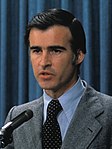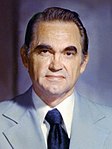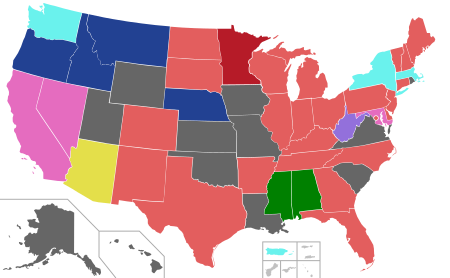| |||||||||||||||||||||||||||||||||||||||||||||||||||||||||||||
3,010 delegates to the Democratic National Convention 1,506 (majority) votes needed to win | |||||||||||||||||||||||||||||||||||||||||||||||||||||||||||||
|---|---|---|---|---|---|---|---|---|---|---|---|---|---|---|---|---|---|---|---|---|---|---|---|---|---|---|---|---|---|---|---|---|---|---|---|---|---|---|---|---|---|---|---|---|---|---|---|---|---|---|---|---|---|---|---|---|---|---|---|---|---|
| |||||||||||||||||||||||||||||||||||||||||||||||||||||||||||||
Carter Udall Brown Jackson Wallace Church Humphrey Byrd Uncommitted | |||||||||||||||||||||||||||||||||||||||||||||||||||||||||||||
| |||||||||||||||||||||||||||||||||||||||||||||||||||||||||||||
From January 27 to June 8, 1976, voters of the Democratic Party chose its nominee for president in the 1976 United States presidential election. Former Georgia governor Jimmy Carter was selected as the nominee through a series of primary elections and caucuses culminating in the 1976 Democratic National Convention held from July 12 to July 15, 1976, in New York City.
The primaries took place after the Watergate scandal and the subsequent Democratic landslide in the 1974 midterm elections. Going into the presidential election, the Democratic Party stood a strong chance of recapturing control of the White House. Hoping to avoid a repeat of 1972, Democrats nominated centrist Georgia governor Jimmy Carter to reclaim the Solid South and win back northern working-class voters. He ultimately defeated President Gerald Ford by a narrow margin, which was the only Democratic presidential win from 1968 until 1992.









